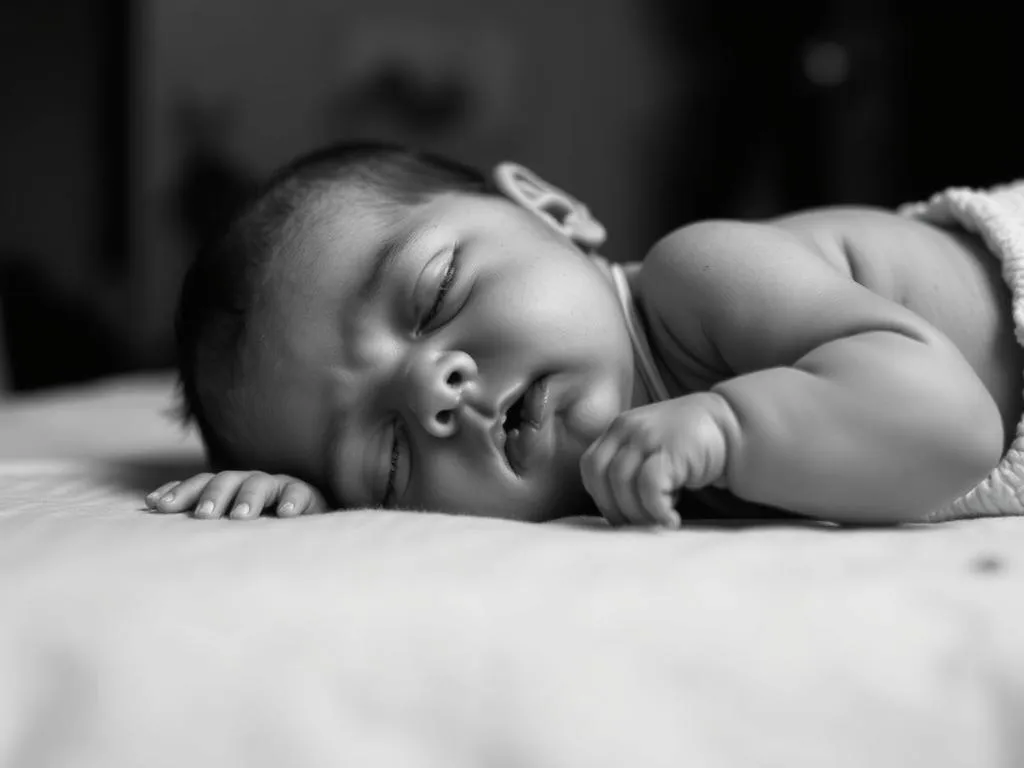Dead Baby Dream Meaning: Unlocking the Deeper Symbolism

Introduction
Dreams can be powerful and often reveal insights into our subconscious thoughts, emotions, and experiences. One of the most unsettling dream scenarios is the ‘dead baby dream meaning’. While these dreams can be deeply disturbing, understanding their symbolic significance can provide valuable self-reflection and personal growth.
The ‘dead baby dream meaning’ is a complex and multifaceted topic that deserves careful exploration. These dreams can evoke strong emotions, ranging from grief and guilt to a sense of loss or failure. However, it’s important to remember that the interpretation of such dreams is highly personal and can vary greatly depending on an individual’s unique life experiences and psychological state.
Exploring the Symbolic Meaning of the ‘Dead Baby Dream’
Grief and Loss
One of the most common interpretations of the ‘dead baby dream meaning’ is that it represents feelings of grief, loss, or the end of a significant phase in one’s life. The death of a baby in a dream can symbolize the loss of a cherished idea, project, or relationship. This could be related to a recent or impending life change, such as the ending of a job, the termination of a relationship, or the loss of a personal goal.
These dreams might also suggest a sense of personal or emotional “death,” where the dreamer is experiencing a profound transformation or transition in their life. The death of the baby can represent the end of a chapter and the beginning of a new one, prompting the dreamer to reflect on their own growth and development.
Guilt and Shame
Another common interpretation of the ‘dead baby dream meaning’ is that it reflects feelings of guilt or shame. The death of a baby in a dream can be a manifestation of the dreamer’s fears, anxieties, or perceived failures as a parent, caretaker, or nurturing individual.
These dreams might suggest that the dreamer is struggling with a sense of inadequacy or a perceived inability to properly care for or protect something (or someone) important to them. The death of the baby can symbolize the dreamer’s own self-doubt or feelings of guilt about their own actions or decisions.
Fertility and Creativity
In some cases, the ‘dead baby dream meaning’ can also be interpreted as a symbol of fertility, creativity, or the dreamer’s own personal growth and development. The death of a baby in a dream might represent the end of a creative or generative phase, paving the way for a new and potentially more fulfilling period in the dreamer’s life.
These dreams could suggest that the dreamer is experiencing a metaphorical “rebirth” or a transformation in their personal, professional, or creative endeavors. The death of the baby might symbolize the release of old patterns, beliefs, or limitations, allowing the dreamer to embrace new opportunities and cultivate their own sense of purpose and self-expression.
Unresolved Trauma or Emotions
In some instances, the ‘dead baby dream meaning’ might be a reflection of unresolved trauma or emotions from the dreamer’s past. These dreams can be a way for the subconscious to process and work through deeply buried feelings, such as the loss of a child, a miscarriage, or other traumatic experiences related to pregnancy or childbirth.
These dreams can be particularly distressing, as they can trigger powerful emotions and memories. However, acknowledging and addressing the underlying issues can be an important step in the healing process, allowing the dreamer to find closure and move forward with a greater sense of personal understanding and emotional well-being.
Interpreting Your ‘Dead Baby Dream’
When interpreting the ‘dead baby dream meaning’, it’s important to consider the specific details and context of the dream, as well as the dreamer’s own personal experiences and emotional state. The symbolism and significance of the dream can vary greatly from person to person, and a one-size-fits-all approach is often not effective.
Some key questions to consider when analyzing a ‘dead baby dream’ include:
- What was the emotional tone of the dream? Was it one of grief, fear, guilt, or something else?
- What was the specific context or setting of the dream? Was the baby in a hospital, a home, or another location?
- How did the dreamer feel about the death of the baby in the dream? Were they overwhelmed with sadness, or did they feel a sense of relief or acceptance?
- Are there any recent life events or personal experiences that might be contributing to the dream’s symbolism?
- Are there any underlying issues or unresolved emotions that the dream might be bringing to the surface?
By exploring these questions and considering the unique circumstances of the dreamer, it becomes possible to uncover the deeper meaning and significance of the ‘dead baby dream’.
Conclusion: Embracing the Symbolic Meaning of the ‘Dead Baby Dream’
The ‘dead baby dream meaning’ is a complex and often deeply personal topic that deserves careful consideration and understanding. While these dreams can be profoundly unsettling, they can also serve as a powerful tool for self-reflection and personal growth.
By exploring the symbolic significance of the ‘dead baby dream’, individuals can gain valuable insights into their own subconscious thoughts, emotions, and experiences. Whether the dream represents grief, loss, guilt, or a metaphorical “rebirth,” the key is to approach the interpretation with an open and compassionate mindset, allowing the dream to guide the dreamer towards a deeper understanding of themselves and their journey.
Remember, the ‘dead baby dream meaning’ is highly personal and can vary greatly from individual to individual. By taking the time to explore the nuances and details of the dream, and by seeking support and guidance from trusted sources, dreamers can unlock the deeper symbolism and use it as a catalyst for positive change and personal transformation.








